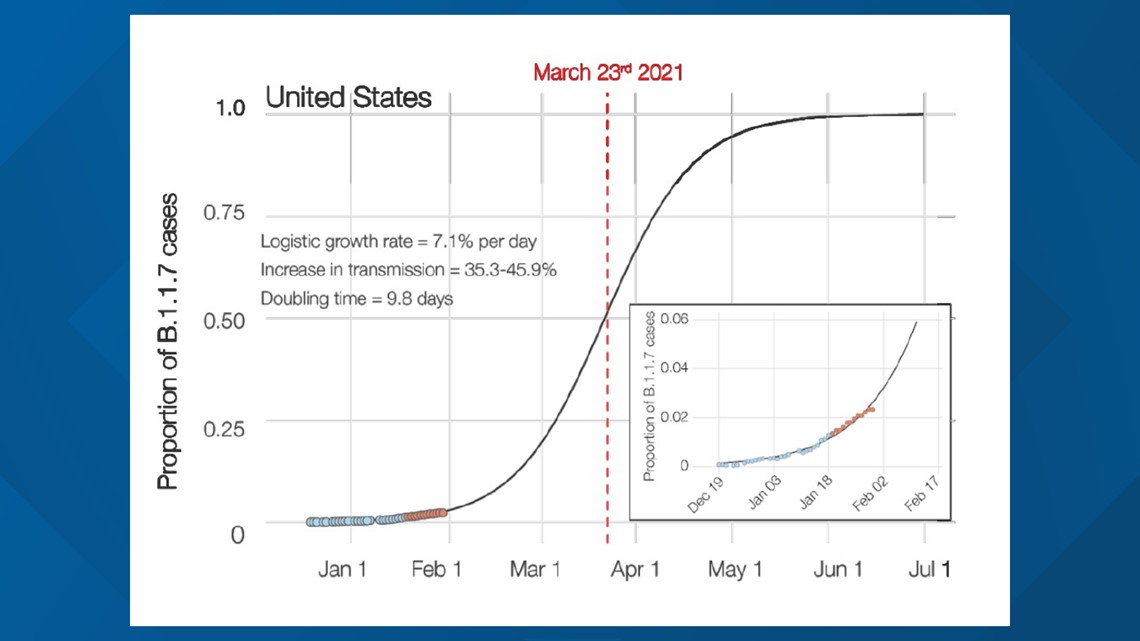CHARLOTTE, N.C. — As North Carolina's vaccination numbers rise and its daily COVID-19 cases fall, another pandemic factor is making moves.
According to the Centers for Disease Control and Prevention, there are three coronavirus variants of concern, and one is still on track to gain dominance as soon as the end of the month.
B.1.1.7, also known as the U.K. variant, is the more common of the two emerging variants detected in North Carolina. The CDC's variant tracker shows laboratories have confirmed at least 40 cases of the U.K. variant in the Tar Heel State, with three cases of the South African variant detected, and none of the Brazil variant.
Along with the South African variant, the U.K. variant is estimated to be around 50% more contagious than the type the U.S. has previously been battling.
"In some states, in Florida and California, it is up to 25%," CDC Director Dr. Rochelle Walensky said. "In other states, it's lower. Our current models still project that by the end of March, early April, B.1.1.7 will be the dominant variant."
One variant projection (see below) the CDC is tracking shows that switch happening as soon as next week.


The change in dominance would come as the state's COVID-19 metrics are nearly back to pre-holiday surge levels. North Carolina is averaging 1,700 new cases each day–down from 8,000 daily cases back in January.
The positive test rate is just under 5% (the NCDHHS goal rate), and coronavirus-related hospitalizations have dipped below 1,000 for the first time under the current patient counting protocol, which started in mid-November.
Health officials believe more-contagious variants like B.1.1.7 could throw a wrench in the progress already made, even as vaccinations continue to rise.
The latest NCDHHS data shows vaccine providers have administered more than 3.3 million COVID-19 vaccine shots statewide, and nearly 20% of the state's population is considered partially vaccinated against the virus.
More than 12% of the population is considered fully vaccinated.
Dr. David Priest, an infectious disease specialist with Novant Health, notes as infections continue, so do the opportunities for even more variants to emerge.
"As the virus makes more copies of itself, errors in that process can occur and we call those error mutations," Priest said.
According to Priest, not all mutations are remarkable. They do not always make a more contagious or deadlier virus, but when you do get one, the potential to backslide is there.
"That means continuing masking, social distancing, and hand hygiene remain critically important as we get more and more people vaccinated across our communities," Priest said.

